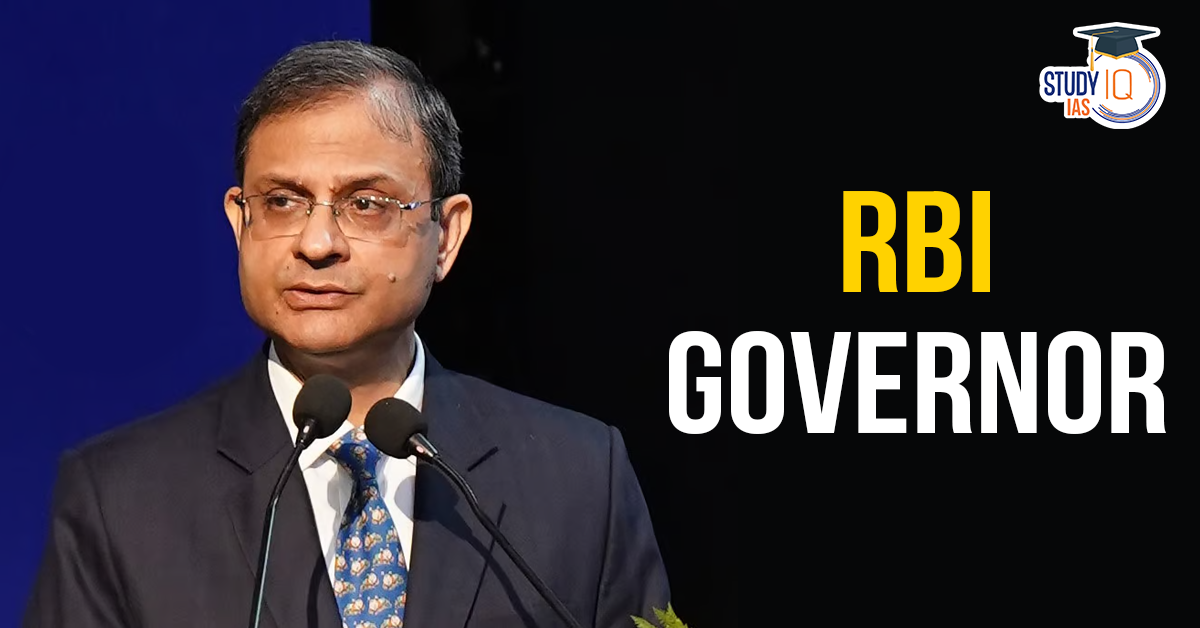Table of Contents
The Reserve Bank of India (RBI), established in 1935, is the apex banking institution in India, entrusted with the responsibility of regulating monetary policy and overseeing the country’s financial stability. The Governor of the Reserve Bank of India serves as the Chief Executive Officer and ex-officio Chairman of the RBI’s Central Board of Directors.
This article provides a detailed list of all the Governors of the Reserve Bank of India from its inception in 1935 to the present day.
Roles and Responsibilities of an RBI Governor
The RBI Governor plays a crucial role in shaping India’s monetary policies and ensuring financial stability. The Indian currency notes issued by the RBI bear the signature of the Governor. The Governor is appointed by the Government of India for a three-year term, with the possibility of reappointment.
Some key responsibilities include:
- Regulating monetary policy to manage inflation and growth.
- Ensuring financial inclusion and banking sector reforms.
- Overseeing the foreign exchange and money markets.
- Serving as a spokesperson for India’s financial system domestically and globally.
Sanjay Malhotra Appointed as New RBI Governor
Sanjay Malhotra, the current Revenue Secretary, has been appointed as the 26th Governor of the Reserve Bank of India (RBI). His appointment follows the conclusion of Shaktikanta Das’s tenure, which ends on December 10, 2024. Malhotra’s three-year term as RBI Governor begins on December 11, 2024.
Key Details about Sanjay Malhotra
- Current Role: Revenue Secretary, Ministry of Finance.
- Education: Holds a Computer Science Engineering degree from IIT Kanpur and a Master’s in Public Policy from Princeton University.
- Career Highlights: With a career spanning over 33 years, Malhotra has held various significant roles in finance, taxation, IT, and mining across both state and central government sectors. He previously served as Secretary in the Department of Financial Services, Ministry of Finance.
Current RBI Governor
RBI Governor of India
The Central Bank of India is the Reserve Bank of India, or RBI. The Reserve Bank of India (RBI) was created on April 1, 1935, in accordance with the provisions of the Reserve Bank of India Act, 1934, and on the advice of the “Hilton-Young Commission.” The RBI was formerly privately held, but on January 1, 1949, with India’s independence, it was entirely transformed into a Government Bank.
List of RBI Governors of India From 1937 to 2024
Here is a complete List of RBI Governors of India From 1937 to 2024:
| RBI Governor’s Name | Time Period |
|---|---|
| Sir Osborne Smith | April 1, 1935 – June 30, 1937 |
| Sir James Braid Taylor | July 1, 1937 – February 17, 1943 |
| Sir C.D. Deshmukh | August 11, 1943 – June 30, 1949 |
| Sir Bengal Rama Rau | July 1, 1949 – January 14, 1957 |
| K.G. Ambegaonkar | January 14, 1957 – February 28, 1957 |
| H.V.R. Iyengar | March 1, 1957 – February 28, 1962 |
| P.C. Bhattacharya | March 1, 1962 – June 30, 1967 |
| L.K. Jha | July 1, 1967 – May 3, 1970 |
| B.N. Adarkar | May 4, 1970 – June 15, 1970 |
| S. Jagannathan | June 16, 1970 – May 19, 1975 |
| N.C. Sen Gupta | May 19, 1975 – August 19, 1975 |
| K.R. Puri | August 20, 1975 – May 2, 1977 |
| M. Narasimham | May 3, 1977 – November 30, 1977 |
| I.G. Patel | December 1, 1977 – September 15, 1982 |
| Manmohan Singh | September 16, 1982 – January 14, 1985 |
| Amitav Ghosh | January 15, 1985 – September 4, 1985 |
| R.N. Malhotra | February 4, 1985 – December 22, 1990 |
| S. Venkitaramanan | December 22, 1990 – December 21, 1992 |
| C. Rangarajan | December 22, 1992 – November 21, 1997 |
| Bimal Jalan | November 22, 1997 – September 6, 2003 |
| Y.V. Reddy | September 6, 2003 – September 5, 2008 |
| D. Subbarao | September 5, 2008 – September 4, 2013 |
| Raghuram G. Rajan | September 4, 2013 – September 4, 2016 |
| Urjit Ravindra Patel | September 4, 2016 – December 10, 2018 |
| Shaktikanta Das | December 12, 2018 – December 10, 2024 |
| Sanjay Malhotra | December 11, 2024 – Present |
RBI Governor Office
The RBI’s main office was first located in Kolkata before being moved to Mumbai in 1937. Osborne Smith was the first governor of the RBI, and Sir C. D. Deshmukh was the first Indian governor. RBI currently has 25 governors. The governor of the Indian RBI is Mr. Shaktikanta Das. He is the 25th RBI Governor and is in charge of all RBI operations.
RBI Governor Appointment
RBI governor is chosen the national government has the authority to select Governors and Deputy Governors to the Reserve Bank of India under Section 8 of the RBI Act 1934. Shaktikanta Das was just named the RBI’s Governor for a three-year term.
RBI Governor Qualification
The Governor’s qualifications are not specified in the RBI Act. In the past, governorships have been chosen for individuals with various educational backgrounds. But in order to lead the RBI, a person must be familiar with financial or economic strategy and have worked as an economist or with the (Economic Affairs Secretary/Financial Secretary, etc.). Therefore, rather than being a regulation, the requirement for Governor is a matter of convention.
RBI Governor Salary
The sources claim that the RBI Governor of India receives a monthly salary of 350,000. In addition to receiving a salary, the governor is also entitled to a rent-free official dwelling, free utilities, and transportation. The governor and his family are given free access to lifelong medical care, lodging, and treatment.
RBI Governor Tenure
The official term for an RBI governor is three years, although in rare circumstances, that term may be extended by an additional two years. The RBI’s longest-serving governor, Benegal Rama Rau, served for 7 years and 197 days. With barely 20 days in office, Amitav Ghosh was India’s governor with the shortest tenure. There are just two circumstances under which the Governor may be removed from office:
- When the President dismisses someone.
- Governor submits letter of resignation to President.
RBI Governor Functions
- Monetary Authority: The RBI oversees the implementation of monetary policy.
- Financial System Regulator and Supervisor: The Reserve Bank of India (RBI) sets broad guidelines for banking activities under which the nation’s banking and financial system operates.
- Manager of Foreign Exchange: Manages India’s foreign exchange reserves and oversees the preservation of the rupee’s external value.
- The currency’s issuer issues, trades, or destroys notes and coins that are unfit for circulation.
- Developmental Role: RBI carries out tasks to assist national goals for financing agriculture and rural areas.
First RBI Governor
Sir Osborne Smith was the first Governor of the Reserve Bank of India, serving from April 1, 1935, to June 30, 1937. He was a professional banker with extensive experience in managing banking operations. Despite his expertise, he had differences with the British government over policy issues, which led to his early resignation. His tenure marked the foundation of the RBI as India’s central bank.
| Related Articles | |
| List of Prime Minister of India | List of President of India |
| List of Vice Presidents of India | List of Chief Ministers of India |
| Viceroy of India | List of Chief Justice of India |


 Topological Materials: The Future of Qua...
Topological Materials: The Future of Qua...
 China’s Deep Sea Station in South Chin...
China’s Deep Sea Station in South Chin...
 Project ICE-CRUNCH: India-Switzerland Co...
Project ICE-CRUNCH: India-Switzerland Co...





















